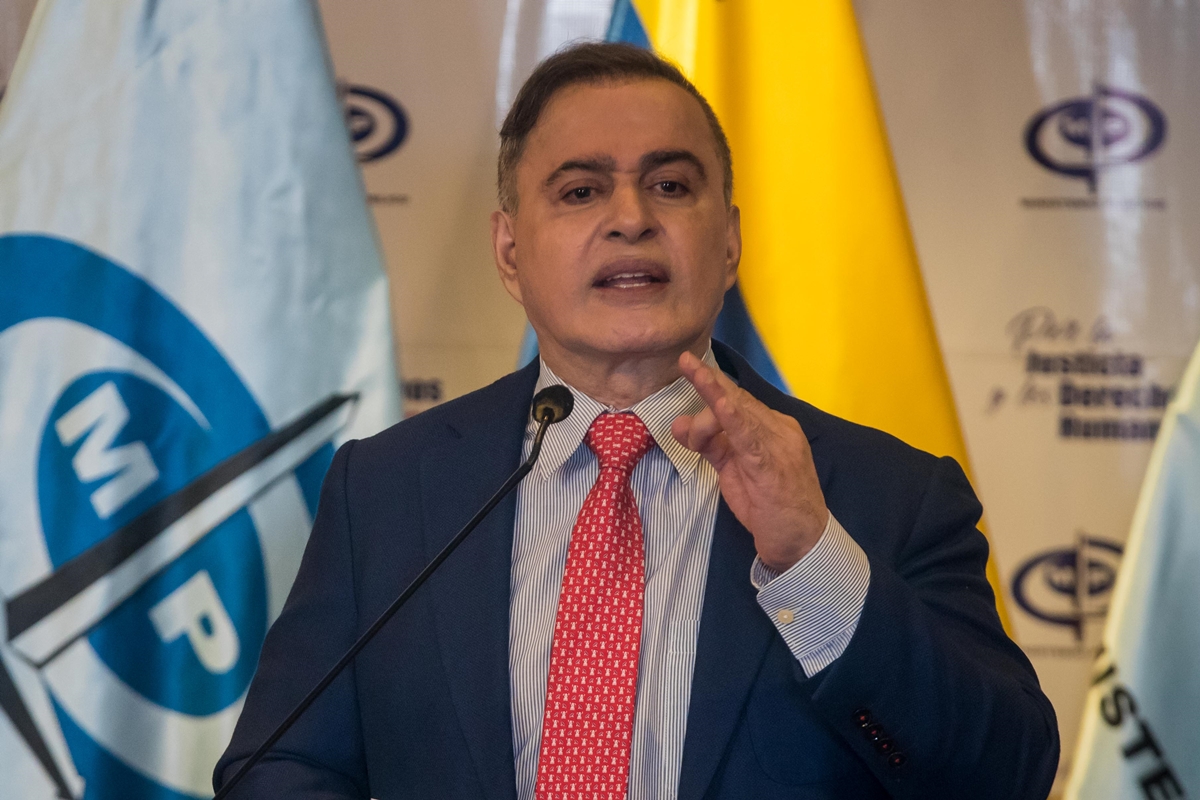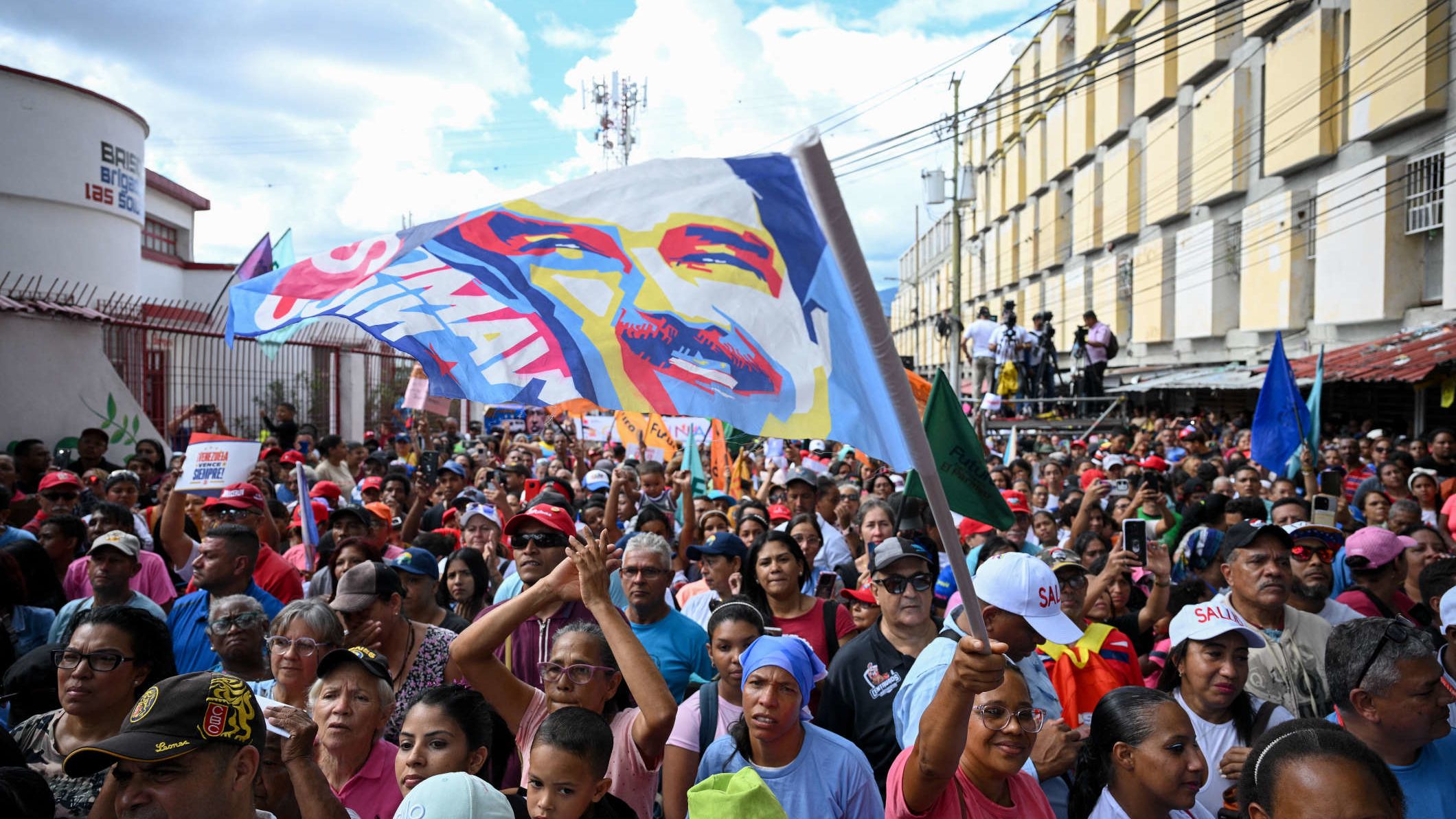The North American intelligence community was shocked after the arrest in Miami of former ambassador Manuel Rocha, 73, accused of spying for the Cuban regime for more than four decades. As the scandal broke, countless questions arose about the ex-diplomat’s espionage activities. What would have been the damages caused by his actions and reasons behind his decision to cooperate with the Castro dictatorship?
Since his initiation into North American political and diplomatic operations, Rocha has become a respected and trusted official by his colleagues. however, Article published this Sunday by Guardian While holding various diplomatic posts in several Latin American countries, It was developing deep feelings of resentment and a “disguised” sympathy for those most in need.
The New York Times This Sunday, he published an article about the humble beginnings of the former diplomat who immigrated from Colombia with his mother, a widow who worked in a slave factory and relied on food stamps and social assistance. In the 1960s they immigrated to the United States, where they lived in the New York section of Harlem.
Fulton Armstrong He is a senior researcher at the Latin American Program at the American University of Washington and a former CIA analyst. In a conversation with a British newspaper, he defined Rocha’s motivation to secretly serve the Cuban regime in three words: “Ego, Resentment, and Resentment.” He also suggested that Rocha never felt accepted among the elite of the North American establishment.
“He’s a very bright guy. Enter the State Department, But he never felt treated fairly. And then you look at America’s policy toward Latin America, and there are many parallel elements to the same things,” he opined.
Even Armstrong considered it Rocha was not recruited by Cuban intelligence, but instead presented himself as a “volunteer”.
The New York Times North American researchers make it clear that they are not done yet Was Rocha’s betrayal motivated by money, ideology or something else? The formal indictment does not specify the nature of the former diplomat’s dealings with Cuba.
Armstrong has already met with Rocha Ana Montes, a former Defense Intelligence Agency analyst who spent 20 years in prison after being discovered as a Cuban spy. Regarding the actions taken by the two, he pointed to the sophisticated nature of Cuban intelligence. Rocha and Montes knew each other and worked as officials for the North American government Unknowingly the other was secretly spying for the Havana regime.
“Imagine that you are the controller of these two sources of information and they don’t know that they are each working undercover for the same employer. The covert communications with Manuel were brilliant,” said the former CIA analyst.
Between 1981 and 2002, Rocha was an employee of the State Department and held various positions at the US embassies in the Dominican Republic, Honduras, Mexico, and Argentina. However, the most intriguing period of his career occurred between 1995 and 1997, when he was stationed at the United States Department of Interests in Havana, Cuba; Years marked by intense tensions between the two countries. The former diplomat’s highest moment was on Cuban soil, when in February 1996 Castro’s military shot down two planes piloted by Brothers to the Rescue, an American group opposed to the Castro regime, resulting in four deaths.
Rocha also served on the US National Security Council. That is, an official who had been in touch with Washington for more than 40 years and knew very important information. For this reason, since his arrest, North American intelligence has begun an urgent assessment of the damage he has caused to find out what secrets he may have shared with the Cuban regime.
Jim PopkinSaid the author of a book about Ana Montes Guardian That “It is unprecedented for an ambassador to be accused of espionage.” “He served on the National Security Council of the White House, where part of his portfolio was about Cuba, which was a big problem. But it was a nightmare scenario to work in the US interests division in Havana when it was recognized that he was working for the other party,” he admitted.
“He would have known the access and the situation and the names of the agents who were working in Havana on behalf of the United States. It’s a very dangerous thing,” said Popkin, who did not hesitate to assume that the scene represented a major “victory” for the Cuban dictatorship.
“What a victory for them to hire someone in the foreign affairs department, see him rise through the ranks and eventually become the US ambassador (…) If you look at Rocha’s career, all his positions were in one place. Useful for Cuba. “They must have been delighted to see how successful he was,” Popkin said.
“For more than 40 years, Victor Manuel Rocha served as an agent of the Cuban government and sought positions in the US government that gave him access to non-public information and the ability to influence US foreign policy,” the US attorney general said. Merrick B. GarlandAfter the former ambassador was arrested.
According to the complaint, Beginning in 1981, Rocha “covertly supported the Republic of Cuba and its secret intelligence-gathering mission against the United States by serving as an undercover agent.” and an agent of Cuba’s General Directorate of Intelligence.
Rocha faces 15 criminal charges in a Miami (Florida) court, including espionage for the Cuban dictatorship and wire fraud, according to an indictment released by the North American Judicial System. If convicted, He faces a maximum sentence of 60 years in prison.

:quality(85)/cloudfront-us-east-1.images.arcpublishing.com/infobae/3LP3P7EQUVAMDCZE22RKZROJCA.jpg)

:quality(85)/cloudfront-us-east-1.images.arcpublishing.com/infobae/DYRQWUXU2VHMHNIVOD22JCU2KU.jpg)
:quality(85)/cloudfront-us-east-1.images.arcpublishing.com/infobae/HVMMKV4KMVDNVJD5W5F7GK4AHY.jpg)
